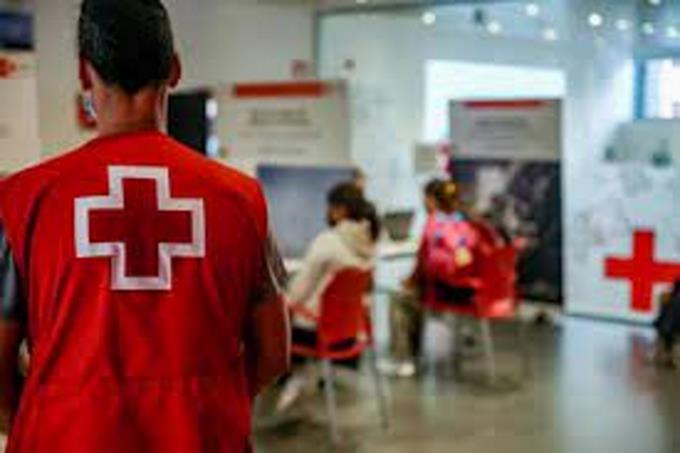The International Committee of the Red Cross (ICRC) requests that "all actors respect" the medical mission in Haiti, a country submerged in an unprecedented humanitarian crisis that requires all possible help from the international community, the head of the organization’s regional delegation, Marisela Silva Chau, told EFE.
Armed violence in Haiti implies restrictions on the movement of the population due to the risk of being injured or killed in the crossfire, which seriously limits access to health services, explained the official of the humanitarian entity in an interview in the Panamanian capital. .
"What we have is a general limitation on access to this medical mission, it is the situation that prevents people who require it from accessing hospitals, and that is why the ICRC, through its community agents, carries out this first aid to stabilize people who may be injured by a gunshot but may also be ill for other reasons"he claimed.
Armed violence in Haiti, which only in the capital, Port-au-Prince, affects some "3 million people, implies many risks in terms of security not only for the general population but also for the humanitarian workers themselves".
"One of the main concerns is the risk to the medical mission and for this reason we call (…) for all actors to be able to respect the medical mission, which implies respecting fixed health structures such as hospitals and medical posts, the structures mobile, i.e. campaigns that can be taken to locations, humanitarian personnel such as community first aid workers"he stressed.
THE DRAMA OF CITÉ SOLEIL
"The ICRC has so far trained 130 community agents who bring first aid to Cité Soleil, where it is difficult to leave to access this service, or where it is difficult to enter"explained the head of the regional delegation for Panama and the Caribbean, with coverage of the ICRC Mission in Haiti.
Cité Soleil is one of the poorest and most densely populated neighborhoods in the capital of Haiti, the poorest country in the Americas. It is also one of the most dangerous places on the island and the epicenter of the armed violence that plagues Port-au-Prince.
But also, this neighborhood, like others, is located in the lower part of the city, facing the sea, and lacks a proper drainage system, which "creates an environment that is not conducive to preventing diseases such as cholera, which is one of the problems that has afflicted Haiti in the past, more recently between September-October" 2022, Silva explained.
The return of the ICRC to Haiti in August 2021, after leaving the country in 2017 due to security problems, "It has been an opportunity to reinforce our contribution to the response" humanitarian "regarding the necessary access to basic health services in areas such as Cité Soleil"he added.
"For us, returning with a focus focused on promoting access to basic health services and promoting humanitarian access to vulnerable people by our and other humanitarian organizations, through dialogue with armed actors, has been a challenge."he acknowledged.
HAITI NEEDS HELP "VERY FIRM" FROM THE INTERNATIONAL COMMUNITY
Silva Chau stressed that Haiti needs the international community "strongly support a humanitarian response to the needs of the most vulnerable affected by armed violence but also by other problems".
The ongoing crisis in Haiti, a country plagued by natural disasters, political instability and armed violence that exacerbate the eternal conditions of poverty, has led to fatigue in the international community with respect to the island.
But "there is an obligation of means, that vulnerable people require this humanitarian response, even beyond the results. If there is one place where the international and humanitarian community should be in the Americas, it is Haiti."Silva said.
The UN is expected to issue a humanitarian appeal in favor of Haiti next month, with which it expects to have almost 715 million dollars to help more than 3 million people.
THE COMPLEX SITUATION IN HAITI
An Amnesty International report released this week includes alarming figures regarding violence in Haiti, a country of more than 11 million inhabitants, with thousands of deaths and injuries, in addition to more than 40% of the population in food emergency and dozens of thousands of displaced
The UN Human Rights Council will vote next week on a resolution that would mean the appointment of an independent expert to examine the Haitian situation, in addition to the start of assistance to the country’s judicial and security forces, already partially controlled by violent gangs.
The resolution, if approved, would urge United Nations states to respond to Haiti’s request for international military intervention to assist it in the conflict with the gangs.

